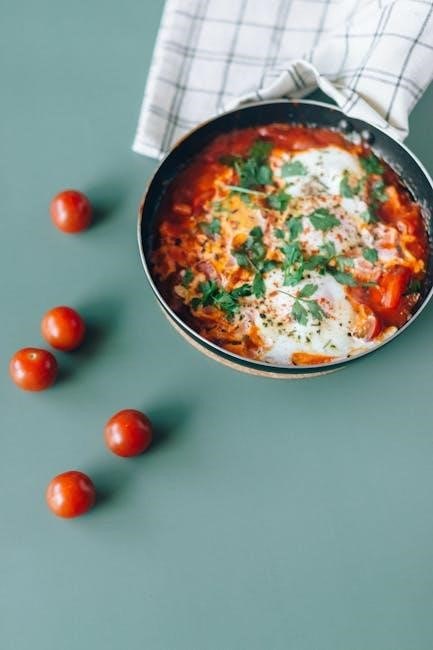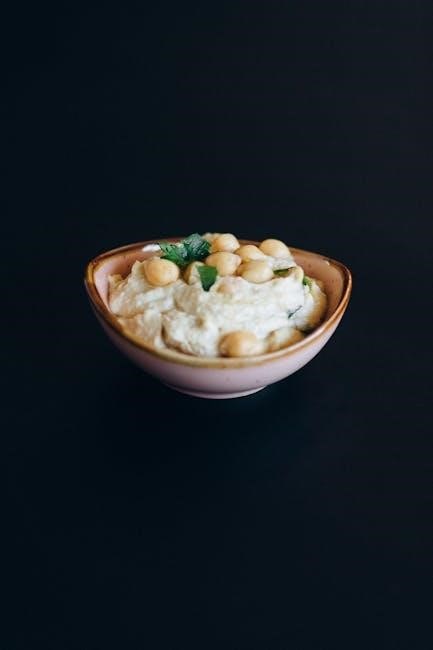Experience the Conair Curl Secret, an innovative automatic curler that creates long-lasting, professional-quality curls effortlessly. Featuring advanced ceramic barrel technology and customizable settings for various curl types and heat levels, it ensures easy, safe styling for stunning results.
Safety Precautions
Always keep the Conair Curl Secret away from water and ensure the cord is undamaged. Avoid using near children, never touch the hot curl chamber, and store properly in a dry place.
General Safety Tips
Always use the Conair Curl Secret on clean, dry hair to avoid damage or electrical hazards. Ensure the device is placed on a heat-resistant surface and keep it away from water. Never use damaged cords or plug the device into an overloaded outlet. Avoid touching the curl chamber during operation, as it becomes extremely hot. Keep children and pets away while styling. Use a heat protectant spray to prevent hair damage and burns. Follow the recommended temperature settings for your hair type. If the device malfunctions, unplug it immediately. Regularly inspect the cord and barrel for damage. Proper storage in a cool, dry place will extend the device’s lifespan. Adhering to these safety tips ensures a safe and effective styling experience with your Curl Secret.
Specific Guidelines
When using the Conair Curl Secret, always ensure the curl chamber opening faces towards your head to avoid tangling or improper curl formation. Never wrap the line cord around the appliance or jerk it at plug connections, as this could cause damage. Avoid using the device near water or in humid environments to prevent electrical hazards. The Curl Secret features an auto-shutoff function, turning off after 60 minutes of inactivity, which enhances safety. Always allow the device to cool completely before storing it in a dry, secure location out of children’s reach. Follow these guidelines to ensure safe and effective use, preventing accidents and extending the product’s lifespan. Proper adherence to these instructions will help you achieve optimal results while maintaining your safety and the device’s performance.
Emergency Procedures
In case of an emergency while using the Conair Curl Secret, immediately unplug the device from the power source. If the device malfunctions or emits unusual odors, discontinue use and allow it to cool before inspecting for damage. Never submerge the appliance in water or attempt to touch the hot curl chamber during operation. If hair becomes tangled, turn off the device and gently remove the hair without pulling. Keep the Curl Secret out of children’s reach to prevent accidents. If the cord is damaged, do not use the device until it is professionally repaired. Store the appliance in a cool, dry place after it has completely cooled down. Following these emergency procedures ensures your safety and prevents potential damage to the device. Always prioritize caution when handling electrical styling tools.

Device Features
The Conair Curl Secret features advanced automatic curling technology, multiple heat settings, and a tourmaline ceramic barrel for smooth, shiny curls. It offers customizable options for curl type, direction, and temperature.
Advanced Technology

The Conair Curl Secret boasts cutting-edge technology designed for effortless curling. Its automatic curling system gently draws hair into a ceramic chamber, ensuring consistent, professional-quality curls without manual effort. The tourmaline ceramic barrel minimizes frizz and enhances shine, while ionic properties promote healthier hair. An advanced anti-tangle feature prevents knots, making the process safer and more efficient. Customizable settings allow users to choose curl type, direction, and heat level, catering to various hair types and styles. This innovative design reduces heat exposure, preventing damage and ensuring long-lasting results. The device’s rapid heating and even heat distribution further enhance its performance, making it a superior choice for achieving salon-quality curls at home. With its user-friendly interface and advanced features, the Curl Secret simplifies the curling process, delivering stunning results with minimal effort.
Heat Settings
The Conair Curl Secret offers customizable heat settings to suit various hair types and desired curl results. With a temperature range of up to 410°F, users can choose the ideal heat level for their hair texture. Lower settings are perfect for fine or damaged hair, while higher temperatures are designed for thicker or coarser hair. This feature ensures that your curls are achieved without unnecessary damage, promoting healthier-looking hair. The device also features rapid heating technology, allowing it to reach the selected temperature quickly and efficiently. Even heat distribution ensures consistent curl formation, preventing hotspots that can damage hair. By adjusting the heat settings, you can tailor your styling experience to achieve the perfect balance between style and hair care, making the Curl Secret versatile for all hair types and curl preferences.
Ceramic Barrel Benefits
The Conair Curl Secret features a high-quality tourmaline ceramic barrel, designed to enhance styling efficiency and promote healthier hair. Tourmaline, a natural mineral, emits ionic properties that reduce frizz and add shine to your curls. The ceramic material ensures even heat distribution, minimizing hotspots that can damage hair. This advanced technology allows for smoother hair gliding, resulting in more uniform curls. Additionally, the tourmaline ceramic barrel helps lock in moisture, leaving your hair with a silky, professional finish. Its durability and heat-conductive properties make it a key component in achieving long-lasting, beautiful curls with minimal effort. This feature underscores the device’s commitment to both style and hair health, ensuring a safer and more effective styling experience.
Hair Preparation
Ensure hair is clean and completely dry before using the Conair Curl Secret. Remove tangles with a comb or brush, and section hair into manageable parts for even styling. Use a heat protectant to prevent damage and enhance results.
Cleaning and Drying
Proper cleaning and drying are essential for maintaining the Conair Curl Secret. Always unplug the device and allow it to cool completely before cleaning. Use a soft, damp cloth to wipe the exterior and barrel, avoiding harsh chemicals or submerging the device in water. For the curl chamber, gently remove any hair residue with a dry cloth. Never use abrasive materials, as they may damage the ceramic surface. After cleaning, ensure the device is fully dry before storing it in a cool, dry place. Regular cleaning prevents buildup and ensures optimal performance. Additionally, avoid wrapping the cord around the device when storing, as this can cause damage. Proper maintenance extends the lifespan of your Curl Secret and ensures safe, effective use.
Sectioning Hair
Sectioning your hair is a crucial step for achieving optimal results with the Conair Curl Secret. Start by dividing your hair into manageable sections, depending on the desired curl tightness. For tighter curls, use smaller sections (about 1 inch wide), while larger sections (up to 2 inches wide) will create looser waves. Clip the top sections away to work from the bottom up, ensuring even styling. Use a comb or brush to smooth each section before feeding it into the device. This step prevents tangles and ensures the hair is evenly wrapped around the barrel. Proper sectioning guarantees consistent curls and minimizes the risk of hair getting tangled in the device. By sectioning your hair carefully, you can achieve professional-looking results with ease and efficiency, making the styling process faster and more effective.

Using the Curl Secret
Place a section of hair into the V-shaped guide, press START, and let the device gently wrap it around the ceramic barrel. After the beep, release the curl downward for salon-quality results.
Step-by-Step Guide

Plug in the Conair Curl Secret and turn it on, allowing it to heat up fully. Ensure the curl chamber is facing toward your head for proper use.
Section your hair into manageable parts, depending on the desired curl tightness. For tighter curls, use smaller sections (1 inch wide), and for looser waves, use larger sections (up to 2 inches wide).
Place a section of hair into the V-shaped guide, aligning it with the opening of the curl chamber. Gently close the handles to secure the hair in place.
Press the START button. The device will automatically draw the hair into the ceramic barrel and wrap it evenly for consistent results.
Wait for the beep, which signals that the curl is ready. Slowly release the curl downward to avoid tangling or disrupting the shape.
Repeat the process for all sections of hair, adjusting the curl direction or type as desired for a personalized look.
Allow the curls to cool slightly before running your fingers through them for a more natural finish, or leave them as is for defined curls.
Using the Curl Secret is straightforward, ensuring salon-quality results with minimal effort and time.
Tips for Effective Use
For optimal results with the Conair Curl Secret, start with clean, dry hair to ensure proper curl formation and avoid damage. Use a heat protectant spray to shield your hair from heat and prevent burns.
Section your hair into manageable parts, smoothing each section before feeding it into the device to minimize tangles. Avoid overloading the barrel with too much hair, as this can reduce curl quality.
Experiment with curl direction (left, right, or alternating) to achieve a natural, voluminous look. For tighter curls, use smaller sections and shorter timing, while looser waves require larger sections and longer durations.
Allow the curls to cool slightly before touching them to set the shape. For a more relaxed look, gently run your fingers through the curls after they’ve cooled.
Regularly clean the ceramic barrel to maintain performance and prevent product buildup. Store the device in a cool, dry place when not in use to prolong its lifespan.
By following these tips, you can maximize the effectiveness of your Conair Curl Secret and achieve stunning, long-lasting curls with ease.
Customizing Your Curls
Customize your curls with ease by selecting from defined, loose, or wavy styles, adjusting heat settings up to 410°F, and choosing curl direction for a personalized, salon-quality finish.
Curl Types
The Conair Curl Secret offers three distinct curl types to suit your style: defined curls for a polished look, loose curls for a relaxed vibe, and wavy curls for a beachy appearance. Each type is achieved by adjusting the device’s settings, allowing you to customize your look effortlessly. Defined curls are perfect for special occasions, while loose curls add a soft, natural texture. Wavy curls create a casual, effortless style ideal for everyday wear. The device’s automatic curling technology ensures consistent results, wrapping hair evenly around the ceramic barrel. Whether you prefer tight spirals or flowing waves, the Curl Secret delivers long-lasting, professional-quality curls with minimal effort. This versatility makes it a must-have tool for achieving any desired curl style, from elegant updos to casual, undone looks. With the Curl Secret, you can experiment with different curl types to match your mood and occasion seamlessly.

Heat Settings
The Conair Curl Secret features adjustable heat settings, allowing you to customize the temperature based on your hair type and desired curl results. With a range of heat options up to 410°F, the device accommodates fine, medium, and thick hair textures. Lower heat settings are ideal for delicate or damaged hair, while higher temperatures are better suited for thicker or coarser hair. This adjustability ensures that you can achieve long-lasting curls without causing damage. The heat settings are easy to navigate, providing precise control over your styling experience. By selecting the right temperature for your hair, you can enhance the health and appearance of your curls. This feature makes the Curl Secret versatile and suitable for a wide range of users, ensuring optimal results for any hair type or style. The ability to tailor the heat ensures healthier hair and more precise control over your curls’ texture and longevity.
Curl Direction
The Conair Curl Secret allows you to customize the direction of your curls, offering left, right, or alternating options for a personalized look. This feature enables you to create a variety of styles, from uniform curls to a more natural, beachy wave effect. By alternating the curl direction, you can achieve a voluminous, salon-quality finish with added texture and movement. The device makes it easy to switch between directions, providing versatility for different hairstyles. Whether you prefer tight, spiral curls or loose, flowing waves, the curl direction setting ensures your curls look polished and professional. This feature enhances creativity, allowing you to experiment with various looks effortlessly. With the ability to control curl direction, the Curl Secret empowers you to achieve the perfect style for any occasion, making it a versatile tool for hair styling enthusiasts. This customization option further solidifies the devices reputation as a must-have for achieving stunning, long-lasting curls.

Maintenance
Regularly clean the Conair Curl Secret with a damp cloth and avoid harsh chemicals. Store it in a cool, dry place, away from children. Do not wrap the cord tightly to prevent damage. Ensure the device is cool before storage for optimal maintenance.
Cleaning
Regular cleaning is essential to maintain the performance and longevity of your Conair Curl Secret. Always unplug the device before cleaning to ensure safety. Use a soft, damp cloth to wipe down the exterior and the ceramic barrel, avoiding harsh chemicals or abrasive materials that could damage the surface. For the curl chamber, gently remove any hair residue or product buildup with a damp cloth or a cotton swab. Do not submerge the device in water or expose it to excessive moisture, as this can damage the internal components. Allow the device to cool completely before cleaning to prevent burns or warping. Regular maintenance ensures optimal functionality and prevents the buildup of residue that could affect curl quality. By following these steps, you can keep your Curl Secret in excellent condition and maintain its effectiveness for creating beautiful curls.
Storage

Proper storage of your Conair Curl Secret is crucial to maintain its performance and extend its lifespan. After use, allow the device to cool down completely before storing it. This prevents moisture buildup and potential damage. Store the Curl Secret in a cool, dry place, away from direct sunlight and humidity. Avoid storing it in areas where children or pets can access it. Use a protective cover or pouch to shield the device from dust and scratches. Do not wrap the cord tightly around the device, as this can cause damage to the wiring. Instead, let the cord hang loosely or coil it gently. Ensure the storage location is stable and secure to prevent accidental tipping or movement. By following these storage guidelines, you can preserve the condition of your Curl Secret and ensure it remains functional for years to come.
Troubleshooting Common Issues
If your Conair Curl Secret isn’t functioning properly, start by checking for common issues. Hair tangles or uneven curls may occur if sections are too large or if the device isn’t used correctly. Ensure hair is completely dry and free of tangles before use. For inconsistent results, verify that the heat setting matches your hair type. If the device stops working, unplug it, allow it to cool, and check for blockages in the curl chamber. Avoid using damaged cords or overloaded outlets, as this can cause malfunctions. If the device overheats, turn it off and let it cool before resuming use. Regularly clean the barrel to remove product buildup, which can affect performance. For persistent issues, refer to the user manual or contact customer support for assistance. Proper care and maintenance can resolve most common problems and ensure optimal performance.
Styling Tips and Tricks
Enhance your styling experience with these tips:
- Use a heat protectant spray to prevent damage and add shine.
- Experiment with different curl directions for unique, personalized styles.
Achieve stunning curls effortlessly!
Advanced Techniques
Elevate your curling skills with these advanced techniques:
- Alternate curl directions for a natural, beachy look by switching between left and right settings.
- Use smaller sections for tighter curls and larger sections for loose waves.
- Experiment with layering curls by starting from the bottom and working upwards for volume.
- Apply a light hairspray before curling to enhance longevity and definition.
- For a polished finish, gently brush out curls after cooling for soft, flowing waves.
These methods allow you to customize your style and achieve salon-quality results with ease.

Comparisons and Alternatives
The Conair Curl Secret stands out among automatic curlers for its ease of use and advanced features. Compared to other brands like T3 or Dyson, it offers similar quality at a more affordable price. While the Beachwaver is another popular option, the Curl Secret is more compact and user-friendly. For those who prefer manual curling, tools like the GHD Curve or Remington curling irons are viable alternatives. However, the Curl Secret’s automatic technology and ceramic barrel make it a top choice for effortless, long-lasting curls. If you’re looking for a cordless option, the Beachwaver Cordless is a great alternative. Ultimately, the Curl Secret is ideal for those seeking convenience and professional results without the hassle of manual styling.

Conclusion
The Conair Curl Secret is a revolutionary styling tool that simplifies the curling process, offering professional-quality results with minimal effort. Its advanced ceramic barrel and customizable settings ensure long-lasting, healthy-looking curls. Designed for ease of use, it caters to all hair types and styles, making it a versatile addition to any beauty routine. By combining innovative technology with user-friendly features, the Curl Secret empowers users to achieve salon-worthy curls at home. Whether you’re a novice or a styling pro, this device delivers consistent results while prioritizing hair health and safety. With its sleek design and efficient performance, the Conair Curl Secret is a must-have for anyone seeking effortless, stunning curls that last all day.





























